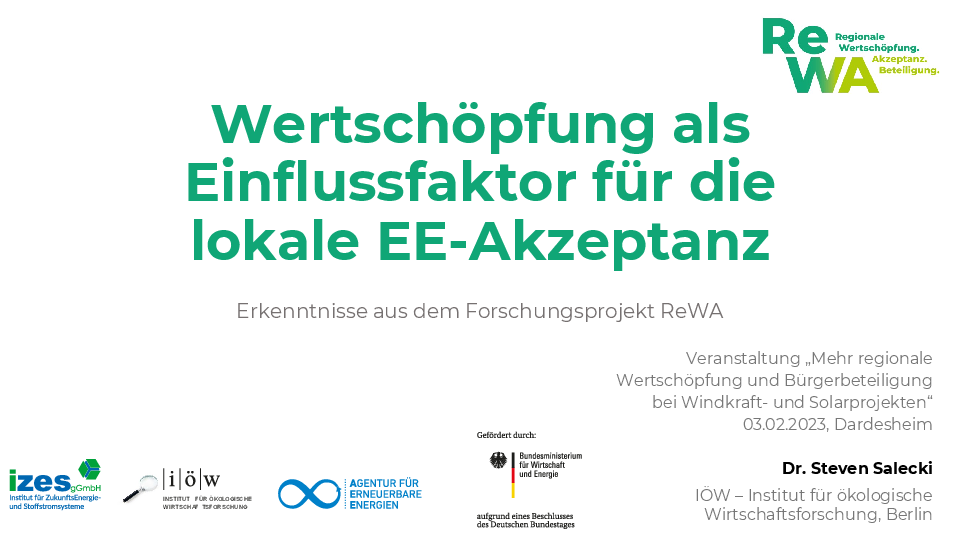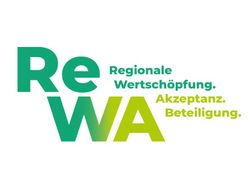Empirical investigation of the relationship between regional added value, participation models and acceptance in the energy transition
The expansion of renewable energies (EE) is associated with far-reaching changes in the energy system and means a significant intervention in the accustomed living environment at local level. Local people can perceive the changes associated with energy infrastructure projects as positive or negative. Areas of conflict include effects on the landscape, species protection, noise and odour emissions, competition for land, but also economic aspects such as electricity prices and financial participation in local facilities. In order to avoid possible conflicts and resistance to the expansion of renewable energies necessary to achieve the climate protection goals and to increase the acceptance of those living in the area, it is important to involve the citizens. This refers to involvement in land use planning and approval procedures, but also to economic participation. So far, the connection between economic participation and acceptance has not yet been sufficiently proven scientifically. In particular, there are still knowledge deficits in the connection between different models of financial participation, regional value creation and acceptance. The influence of local conditions such as structural and socio-economic aspects, but also political and legal frameworks, is also still unclear.
Against this background, the aim of the project is to investigate the connections between acceptance and regional value creation, taking into account the effects of different participation models in EE projects in selected energy municipalities.
IÖW Project Team
- Katharina Heinbach
- Prof. Dr. Bernd Hirschl






